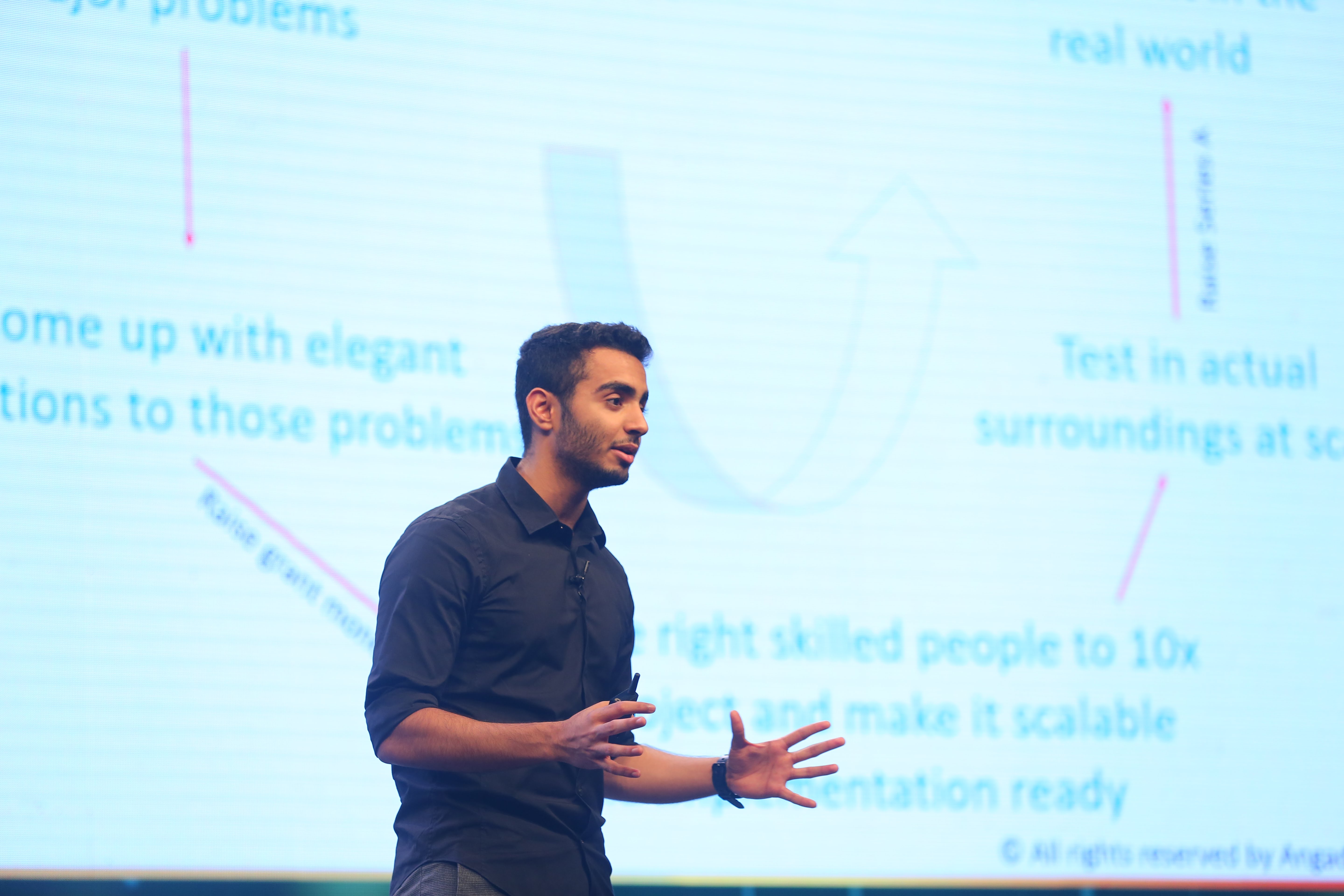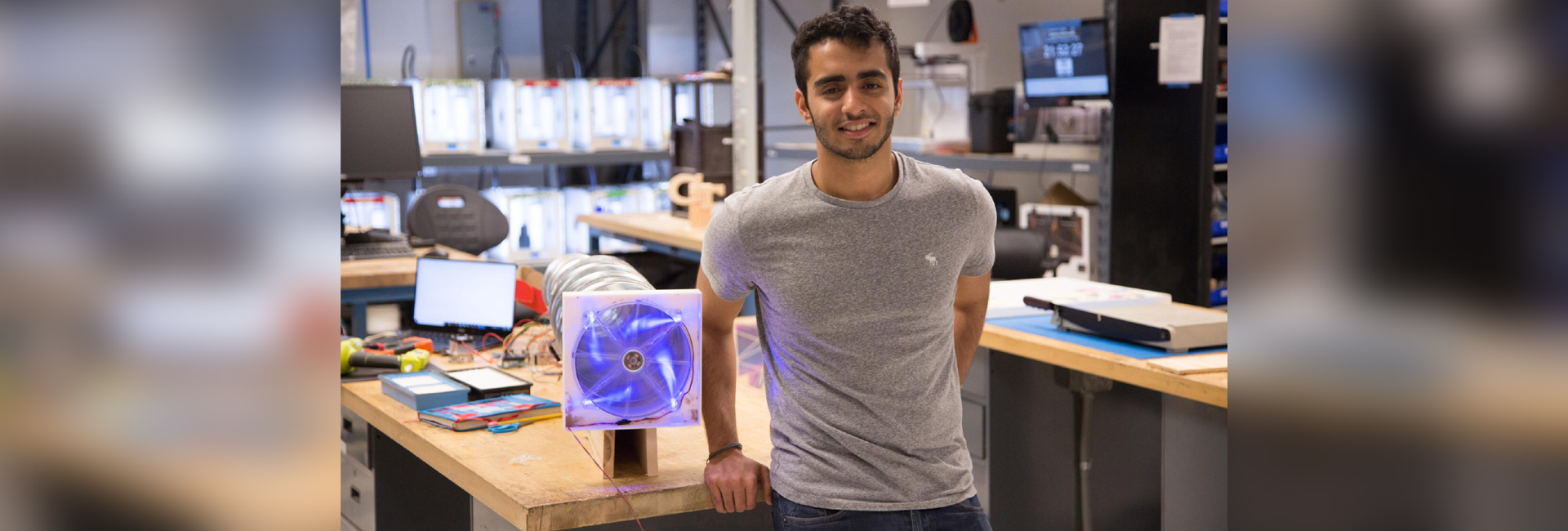(June 2, 2024) Blue skies, no masks, and clean air – that’s how entrepreneur Angad Daryani and his clean tech startup Praan vision the world. An inspiration that he found while growing up with asthma in the heart of Mumbai. Each year, he would move to the hills during Diwali to breathe clean air. His constant struggle with air pollution in a country that comprises the 21 most polluted cities in the world was nothing short of a nightmare. But it wasn’t until he shifted to the US for his higher studies that Angad’s idea of making a change started taking shape after he realised that the air was more breathable. He wanted his family and friends to breathe the same clean air, but without dislocating them. That’s when Praan started to take its form, a startup that doesn’t clean up the atmosphere, instead, it creates localised hotspots of clean air in places that require it the most.
“All I wanted to do was to figure out if at all it was possible to improve outdoor air quality, without government policy, without changes in consumer behaviour in short term, and to create a healthier environment through the private sector. Sounds crazy and unrealistic. Definitely was. Until we made it realistic,” the entrepreneur said.

Angad Daryani is the founder of Praan.
It was during his second year at the Georgia Institute of Technology while working on Project Breathe that it dawned upon him that while his parents’ generation grew up excited for a bright future, the youngsters his age were reading about animals going extinct or water and air pollution. The apprehension of an uncertain and bleak future led him to bring about a change, and he found the solution in filter-less technology that took three years to prototype and develop. “At Praan, we believe that any technology built to tackle climate change or public health catastrophes should be a net positive. Hence, we spend our time building filterless, adaptable, and affordable devices which solve the problem at scale. Our technologies adapt to changing weather conditions and ensure that all captured pollutants are recycled,” reads Praan website.
The low-cost and AI-based outdoor air purification systems come with a fan that pulls in polluted air, and filtered particles settle down in a collection chamber. Once filled, it notifies the customer who can empty it and put it back again, which according to the 23-year-old is a “30-second process.” It was the challenging infrastructure requirement that prompted Angad to look at a solution that needed near zero maintenance. That’s when the idea of filter-less technology came in. “We remove pollution from the air without any replaceable filters. So, there is no maintenance cost in owing these devices. Our mission is clean air for all. Our hardware has to be low cost,” the Global Indian added.
What began as a project at Georgia Tech has now taken the form of a company that’s growing and expanding, with the help of engineers, designers, and volunteers. Two years since its inception, the startup deployed its first product in India in June 2019 and has been working on improving it with better manufacturing quality and research. In February 2022, Praan secured $1.56 million in funding from Social Impact Capital which understands the need for a solution to the problem of air pollution that kills over 70 million people every year.
While Praan has catapulted Angad into the league of deep tech startup entrepreneurs, he has always been a keen learner. As young as eight, he made his first robot and by the time he turned 13, he had built his prototype of RepRap 3D printer. A self-learner who credits the internet for learning, dropped out of school in Class 9 as he “didn’t want to rote learn concepts anymore” and started home-schooling. By 16, he was running two companies (Shark Kits and Makers Asylums) “which create products that engender curiosity and innovation.” The entrepreneur and his team also developed a Virtual Brailler (in collaboration with MIT Media Labs) that converts any PDF document into braille.
But it is Praan that’s helping Angad create the right impact with his work. Currently, the startup has found schools and industrial sites as its initial customers. So how does it work? Praan leases the hardware to its customers for a fixed price per month per device, which is then placed in strategic locations keeping in mind the architecture of the street, airflow, and pollution dynamics. “We have a process where we study the site and the pollution dynamics, we are able to analyse it in software, place our devices in the software as we place them in the real world, understand the impact, optimise it, and then install our hardware in the real world,” he told YourStory. Praan aims to create hyper-local zones in places like malls, hotels, schools, and gardens with its flagship product Mach One.
With one office in California and another in Mumbai, Praan is now planning to expand through B2B deployments. “Climate problems can only be solved through deep-tech and hardware, and one has to change the world to deploy these solutions. Praan has taken the government, businesses, storytellers, and the best team along this journey to solve this problem together. Activism doesn’t solve problems. The action does,” the entrepreneur wrote on Medium.

